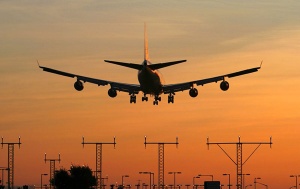Busiest ever year for London Heathrow

London Heathrow welcomed over 68 million passengers in the past 12 months, making it the busiest year in the airport’s history.
The achievement crowned a strong period for airport operator BAA, which recorded a total of 9.3 million passengers in May.
Heathrow’s passenger numbers grew by 11.6 per cent when compared to May 2010 (which was affected by volcanic ash and industrial action at British Airways).
Accounting for these impacts leaves Heathrow with an estimated underlying 5.2 per cent increase for the month of May.
For the year to date Heathrow’s traffic is up 9.8 per cent with underlying growth of 2.7 per cent.
However, the record is unlikely to be significantly bettered in the near-term, with the British coalition government ruling out the possibility of a third runway at London Heathrow for the foreseeable future.
BAA Traffic
Traffic at the group’s six airports increased by 9.2 per cent over last May.
The late Easter holidays and Royal Wedding led to more passengers at the beginning of the month whereas the Grímsvötn eruption in Iceland led only to a marginal decrease in traffic.
Stripping out the negative effects of events in 2010, the group recorded underlying growth of 1.7 per cent in the year to date.
Both Edinburgh and Aberdeen recorded double digit increases in the month (13.7 per cent and 11.8 per cent respectively) with underlying growth for the year to date of 6.9 per cent and seven per cent respectively.
Traffic at Glasgow increased seven per cent in May 2011 whilst the underlying growth for the year to date was 1.3 per cent.
Stansted saw its second consecutive monthly rise (0.7 per cent) for the first time since October 2007, although on a year to date basis the underlying decline is four per cent, reflecting the transfer of capacity by low-cost airlines to continental Europe.
Southampton’s traffic was down 1.1 per cent in the month, and down seven per cent on an underlying year to date basis, largely as a result of a drop in European scheduled traffic.
Colin Matthews, chief executive of BAA, said: “Demand is particularly strong on the long-haul routes that connect UK businesses to fast-growing economies around the world.”

